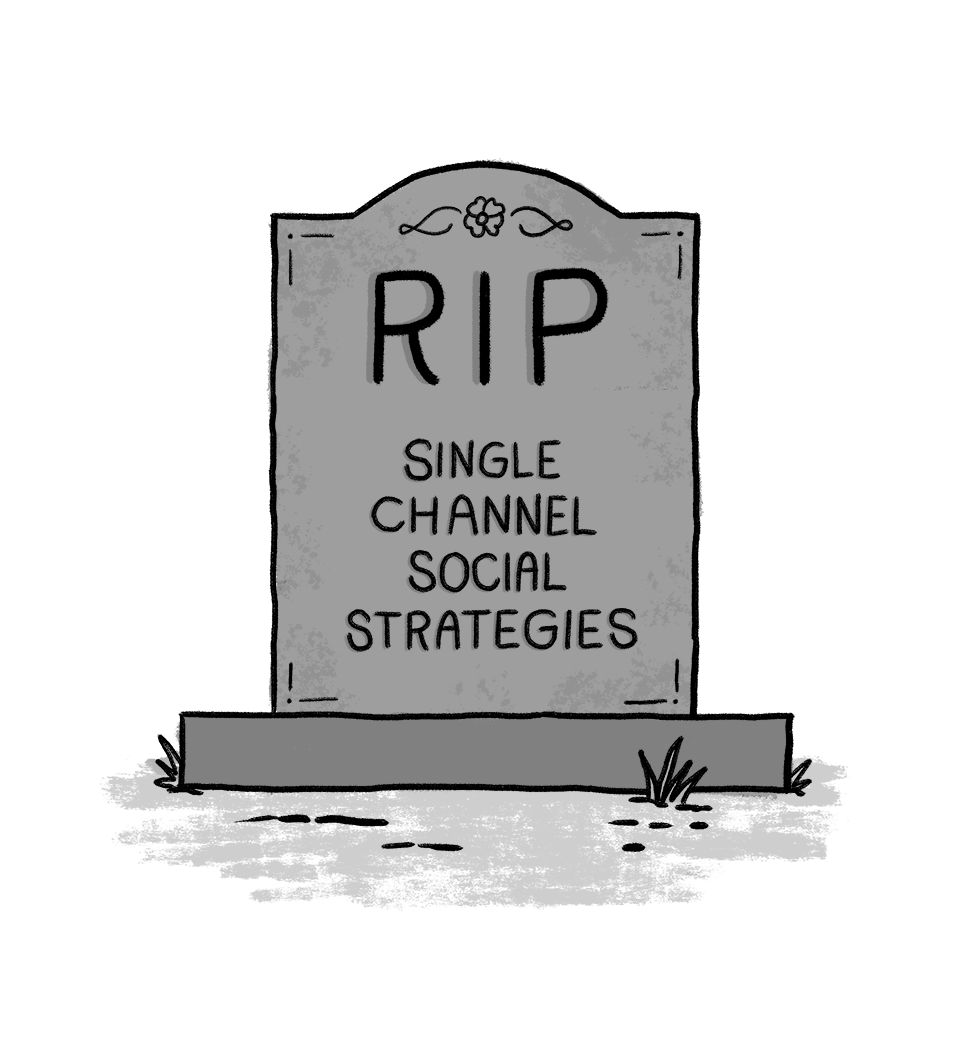How to Evaluate Your Social Strategy After the Cambridge Analytica Scandal

When allegations emerged that Cambridge Analytica, a political consultancy and research firm, illegally obtained and used 87 million Facebook users’ personal information, the world. went. WILD. The scandal had far-reaching implications, raising questions about everything from the safety of our personal data to the legitimacy of the 2016 election results.
As a direct result of the breach, user confidence in Facebook plummeted by 66 percent, a #deletefacebook hashtag started trending on Twitter, and celebrities and average Joe Schmoe’s alike claimed they were abandoning the platform. So naturally, businesses everywhere are wondering: “What does this mean for the future of Facebook?” And more specifically, “What does this mean for those of us who rely on Facebook for marketing?”
We get it—it’s a frustrating situation to be in. You’ve spent what feels like eons (and likely tons of money) building a following on Facebook. You’ve tested new content and clever ways to beat the ever-changing algorithm. You’ve invested in video content and influencer partnerships to boost your engagement. And NOW after all of that hard work, you’re stuck with the reality that Facebook’s screw up could impact your business.
But here’s the hard truth that brands need to realize—you can’t put all of your eggs in one basket. And here’s why:
- You don’t own your presence on any social network. At any given time, a social network could disable your page, fall victim to a scandal, or shut down altogether (anyone remember Formspring, Meerkat, Vine…?). If that happens, you’ll be forced to start all over and build a new following on another platform, and you’ll have no way to connect with your audience via social in the meantime.
- The social media landscape has evolved. While Facebook has long been touted as the holy grail of social networks, new, strategic platforms (such as Vero, NextDoor, and Wanelo) are constantly being created—each reaching its own niche audiences and providing its own value and advantages. If your business is only on Facebook, you’re missing out on the opportunity to reach a more strategic, niche audience, and ultimately, your business goals.
- The best social strategies consist of multiple channels to engage with your target audience and keep your brand top-of-mind. Brands who aim to have a healthy social strategy should regularly evaluate the channels they’re on and determine which ones give them the best access to their clients or customers.
So if you’re wondering what to do in the wake of the Facebook data breach, our best advice is to diversify, diversify, DIVERSIFY. Reassess your social strategy and get smart about how you dedicate your time, energy, and dollars on social media.
The good news is, despite the worldwide panic, the Cambridge Analytica scandal didn’t impact Facebook usage as much as we all thought it would. In fact, data shows that average time spent on the app has remained consistent.
But the key takeaway is this: if you have a healthy marketing mix, when the next social media scandal rolls around, it won’t even matter.